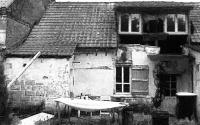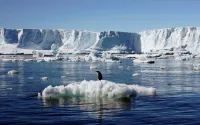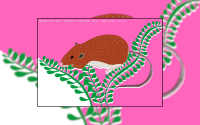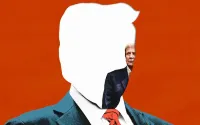Stuart MuncktonGreen Left
The hearing was presided over by Venezuelan Vice-President Jose Vincent Rangel and featured a jury made up of lawyers, economists and intellectuals from Venezuela, Cuba, Vietnam, Britain, Syria, Zimbabwe, North Korea, Mexico and Spain. The chief prosecutor was Eva Golinger, a high-profile attorney and author of The Chavez Code, which documents how the US government has intervened illegally in Venezuela to attempt to bring down the left-wing government of Hugo Chavez.
There was no defence for imperialism present, despite Rangel explaining that the tribunal was open to anyone who wished to speak before it to offer a defence, including the US ambassador to Venezuela, William Browning. Rangel explained that although imperialism had “defence attorneys” throughout the world, none had the courage to appear.
More than 10,000 young delegates to the festival, from 144 countries, heard often moving testimonies from dozens of witnesses about the crimes of imperialism, including torture, murder, denial of national independence, genocide, suppression of freedom of speech, economic sabotage, the overthrow of popular governments and brutal military invasions.
On the first day, witnesses testified from countries including Vietnam, Puerto Rico, Brazil, Colombia, Korea, Greece and Cyprus. A documentary detailing the overthrow of the Aristide government and the imperialist occupation of Haiti was shown. Especially moving was the testimony from Fernando Suarez del Solar, the father of a young unemployed Hispanic man from the US who was killed in Iraq. He provided accounts of how the US military trawled the ghettoes to find desperate poor youths to be their cannon fodder in Iraq.
The second day focused on the crimes of imperialism against Cuba and Venezuela, and culminated in special testimony presented by Chavez. Repeatedly interrupted by applause, revolutionary chants and standing ovations, a series of representatives of the Cuban people gave profoundly emotional testimonies, providing detailed evidence of the ongoing campaign of sabotage and terror waged against them by the US government since the triumph of the Cuban Revolution in 1959.
The tribunal heard first from Percy Albarado, a Guatemalan who spent 22 years working for Cuba’s security service, infiltrating the right-wing CIA-backed Cuban-American terrorist organisations that operate out of Miami. Albarado detailed his experiences in being trained as a terrorist, and outlined the direct involvement of the US government. He demanded the terrorists who murder civilians and are protected by the US be brought to justice, that the US leaders who “hypocritically talk of a war on terror while spreading it around the world” likewise pay for their crimes.
In response to a question from a juror, Albarado explained that he believed that the terrorist methods used against Cuba were certain to be employed against Venezuela, given the repeated failure of the US to overthrow Chavez’s revolutionary government. He explained that there already existed an alliance between Cuban terrorist groups in Miami and the right-wing Venezuelan opposition.
The tribunal also heard moving testimony from a daughter and a mother of two of the five Cubans imprisoned in the US for their anti-terrorist activity, as well as from the son of one of the victims of the bombing of a 1976 civilian Cuban flight by a Cuban CIA operative that killed all its passengers.
A sight-impaired Cuban university student provided evidence of the impact of the over-four-decade-long US economic blockade of Cuba, explaining how the blockade had denied the blind in Cuba tools such as braille and walking canes. She explained that when as a child her eye sight deteriorated, the blockade denied her medicines, causing her to lose even more of her sight. She explained, “Imperialism took away my sight, but I still see the colours of hope”. She said that following the example of Che Guevara, “I swear that I will struggle against imperialism until victory!”
Also appearing before the tribunal was the president of Cuba’s National Assembly, Ricardo Alarcon, who explained that US aggression against Cuba dated back to the beginning of the 19th century when US leaders aimed to annex Cuba as a colony.
Testimony was also heard from two Venezuelans about events surrounding the US-backed military coup that overthrew the Chavez government on April 11, 2002, before a popular uprising restored the government two days later. Both witnesses were shot in the lead-up to the coup. They provided evidence that, contrary to claims from the opposition who carried out the coup that the shootings were ordered by Chavez, they were in fact carried out by members of the metropolitan police under opposition control.
The second witness, a housewife who still has a bullet lodged in her cheek, explained how, still bleeding from her face wound, she took to the streets on April 11 to fight for Chavez’s restoration and didn’t return home until victorious. Both insisted that, in the face of a similar threat to the revolution, they would be on the frontlines again.
Chavez’s testimony
The highlight of the tribunal was without any doubt the “special testimony” of Chavez himself. The stadium was packed to capacity as excitement at the prospect of hearing from a great modern revolutionary hero grew.
The singing and chanting grew louder and more forceful by the minute. A singer performing revolutionary songs brought the crowd to its feet and the continuous applause, flag and banner waving and chanting grew and grew.
Just when it appeared the revolutionary fervour had reached an insurmountable pinnacle, Chavez finally appeared. Such was the overflow of enthusiasm that it took nearly half an hour before Chavez could start his speech. Whenever it seemed as though the chanting was dying down from one section of the crowd, it would start up with double the enthusiasm from another.
When one section of the crowd, shaking the stadium, bounced up and down shouting “If you don’t jump you are a yankee!”, Chavez obliged and danced a jig in front of the podium. The stadium threatened to collapse as tens of thousands of revolutionary youth jumped up and down in the stands in unison. When a Mexican wave started, Chavez obliged again, participating from the stage. Eventually, Chavez spontaneously started singing Venezuela’s national anthem, forcing the crowd to stand and sing together. It proved an effective tactic and at the end, Chavez asked “May I speak now?”. The crowd responded, “Yes!”
In a profoundly revolutionary talk with a deep humanism and determination that repeatedly brought the crowd to its feet, Chavez spoke for over three hours without ever losing his audience. It was no ordinary speech, but a dialogue. Chavez was inspired by the youthful revolutionary energy of the crowd, which in turn raised the fervour of the stadium to a previously unthinkable level.
“The world is in peril”, Chavez insisted. The very survival of humanity is at stake and “either we dismantle imperialism or imperialism destroys the planet — this is our dilemma”. He reminded the audience of the words of Karl Marx, repeated by Rosa Luxemburg: either socialism or barbarism.
Chavez warned that Marx and Luxemburg were discussing the future, but that today, humanity does not have decades, only years. Yet he expressed a deep faith in the ability of humanity to win. He placed special emphasis on the role of youth, driving home to the delegates that the future of the world is in our hands.
Chavez quoted Che Guevara saying that the revolutionary is the highest form of a human being, and as such, those present were the best of our generation and we had the potential, if we struggled hard enough, to save the planet.
Acknowledging the 60th anniversary of the atomic bombing of Hiroshima and Nagasaki, which he condemned as imperialism’s greatest crime, Chavez declared that here in Caracas at the festival “another atomic bomb has gone off”. He said: “You are the atomic bomb of life and we are duty bound to spread this across all continents.”
Chavez claimed the US empire is the “cruelest and most violent empire in history” and paid tribute to the recent world tribunal against the occupation of Iraq, an occupation “whose victims continue to grow”. He produced a copy of a book that he strongly recommended to the audience: Hegemony or Survival, by “the great anti-imperialist” US intellectual Noam Chomsky, whose book, Chavez said, demolishes the arguments of imperialism and exposes its true face.
Chavez announced his government’s plan to establish an “anti-imperialist publishing house”, with the collaboration of Cuba, to publish “20 million” anti-imperialist books like the works of Chomsky. The books would be distributed free of charge, he said.
Chavez referred to the dream of Venezuelan-born liberation leader Simon Bolivar, who liberated six countries from Spanish rule. He accused the US of a “200-year-long” campaign to “destroy Bolivar’s dream”.
He asked the audience to imagine what Latin America would be like if the US had not overthrown the Guatemalan government in the 1950s, or invaded the Dominican Republic in the ’60s, or overthrown Chile’s socialist government in the ’70s, or invaded Grenada in the ’80s. Bringing the crowd to its feet with a roar, he declared that there was one exception to this rule: nearly 50 years of revolutionary Cuba!
Chavez argued that Cuba was the greatest threat the US faced because of the powerful example of its socialist system.
Declaring “we must win this battle”, Chavez insisted the battle to defeat imperialism was not against the US people, but with them. Chavez announced that one of the Cuba-Venezuela missions being spread to Latin America, Mission Miracles — whereby those who are sight-impaired are flown free of charge to Cuba to have cataracts removed — would be made available to US citizens.
‘Who here is a socialist?’
Chavez left no doubt about what system he supported to replace imperialism, coming out strongly for a socialist alternative. The position of the crowd was not in any doubt either: when Chavez at one point asked “Who here is a socialist?”, 10,000 hands reached for the roof.
Neither did Chavez shy away from controversy. To an audience with many representatives of youth groups of communist parties that were aligned to the former Soviet Union, Chavez didn’t hesitate to quote the great anti-Stalinist revolutionary Leon Trotsky, or repeat Che Guevara’s criticisms of the Soviet Union for abandoning the Third World. Both comments received a noticeably mixed response.
Chavez imbued his speech with optimism, pointing to the growing anti-imperialist revolt in Latin America and the advance of the Venezuelan revolution. He declared that the US “will never be victorious in Venezuela” and that it is “doomed to failure” because the revolutionary consciousness of the people is too high. He pointed out that peoples’ resistance killed the US-backed Free Trade Area of the Americas, and that the alternative promoted by Venezuela and Cuba, the Bolivarian Alternative for the Americas, based on cooperation and solidarity, continued to advance. “I want you to go back and bring the good news: imperialism is not invincible!”
Chavez ended by ensuring everyone present knew that their duty was in the struggle against imperialism. He insisted the festival could not end here, but must find the ways and means of continuing all year round. Chavez concluded his accusations against US imperialism with the statement: “This savage form of imperialism will be defeated in this, the 21st century!” The crowd exploded once more and Chavez was mobbed as he attempted to leave the stage.
Following Chavez’s speech, the jury retired to prepare its verdict. It returned to announce imperialism had been found guilty of serious crimes against humanity. The tribunal found imperialism “in all its forms”, but especially the hegemonic power of the US, as well as its allies, transnational corporations and imperialist international institutions, “guilty and condemns it for its crimes”.
Although the tribunal carries no legal weight, it was announced that its findings would be passed on to all relevant international bodies. The tribunal also called for US President George Bush to be tried immediately under international law for his role in imperialism’s crimes.
From Green Left Weekly, August 24, 2005.






